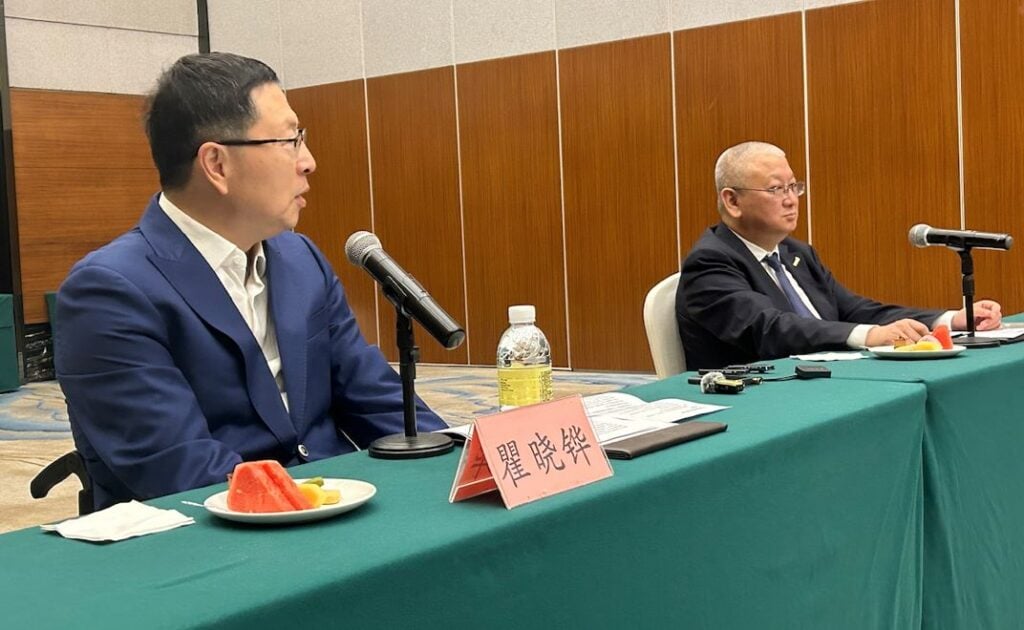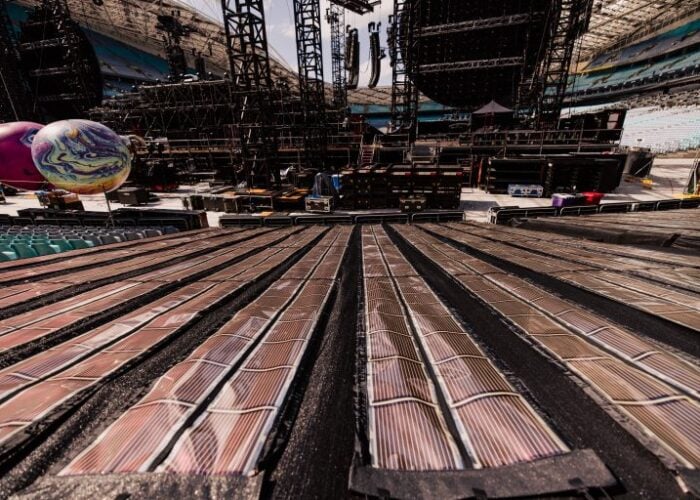
Solar manufacturer Canadian Solar recorded a slight increase in module shipments and endured losses in Q1 2025, as the company continues to weather low prices and “geopolitical complexities”.
Shipments reached 6.9GW in the first three months of the year, a 9.4% year-on-year (YoY) increase but down 16% from Q4 2024.
Try Premium for just $1
- Full premium access for the first month at only $1
- Converts to an annual rate after 30 days unless cancelled
- Cancel anytime during the trial period
Premium Benefits
- Expert industry analysis and interviews
- Digital access to PV Tech Power journal
- Exclusive event discounts
Or get the full Premium subscription right away
Or continue reading this article for free
The company posted net losses of US$34 million over the period, down from net income of US$34 million in Q4 and US$12 million in Q1 2024.
Gross profits were US$140 million, down notably from US$217 million in Q4 2024 and US$253 million in Q1 last year.
The company’s total debt was US$5.7 billion as of the end of March, with US$2.4 billion and US$3.0 billion related to CSI Solar, its manufacturing arm, and Recurrent Energy, its solar development subsidiary, respectively.
PV Tech reported on CSI Solar’s standalone financial results earlier this month. The company posted profits of US$6.4 million in the first quarter and revealed possible plans to relocate manufacturing capacity as a result of US president Donald Trump’s global tariff regime.
Challenges persist
Overcapacity in the solar supply chain and subsequently low selling prices have affected the bottom lines of all large solar manufacturers, even as global demand has grown. CSI Solar currently operates 61GW of nameplate module manufacturing capacity, but last year shipped just over 30GW, a roughly 50% utilisation rate that reflects the wider industry situation.
Shawn Qu, CEO of Canadian Solar, said: “We started 2025 facing many of the same challenges that defined 2024, with module prices reaching historic lows and geopolitical complexities persisting.”
He continued: “We will continue to manage module volumes with a focus on profitability, accelerate growth in our margin-accretive energy storage business, and advance Recurrent Energy’s transition toward a partial independent power producer (IPP) model.”
In March, Qu appeared alongside the head of LONGi Green Energy, Li Zhenguo, at an event in China to discuss the state of the PV manufacturing industry (premium access). The two men warned that significant price recovery may be unlikely in the current oversupply situation, a sentiment that was echoed on the show floor at Intersolar Europe in Munich last week.
PV Tech also heard that the manufacturing industry is likely to consolidate among major players, likely including Canadian Solar, and that some companies may put more emphasis on energy storage and other technology solutions to recover greater margins.
Canadian Solar’s Q1 results emphasised new energy storage product offerings from CSI Solar’s e-STORAGE business.
Yan Zhaung, president of CSI Solar, said: “While e-STORAGE faces near-term uncertainty, our record 91GWh pipeline and contracted backlog underscore the segment’s structural growth potential. As policy clarity emerges, we continue to be well-positioned to capitalise on growing robust demand for storage solutions globally.”
Canadian Solar said it expects to ship between 25GW and 30GW of modules over the course of 2025, with around 1GW to be supplied to its own PV projects.






